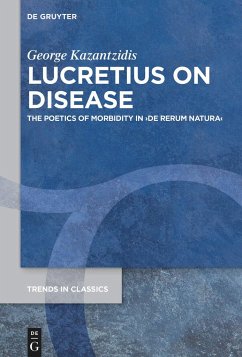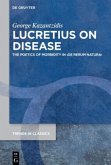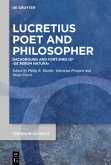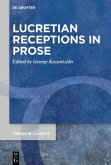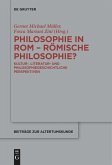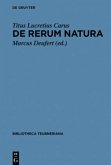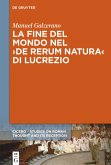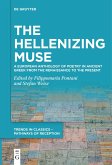The standard view in scholarship is that disease in Lucretius' De rerum natura is mainly a problem to be solved and then dispensed with.
However, a closer reading suggests that things are more layered and complex than they appear at first sight: just as morbus causes a radical rearrangement of atoms in the body and makes the patient engage with alternative and up to that point unknown dimensions of the sensible world, so does disease as a theme generate a multiplicity of meanings in the text. The present book argues for a reconsideration of morbus in De rerum natura along those lines: it invites the reader to revisit the topic of disease and reflect on the various, and often contrasting, discourses that unfold around it. More specifically, it illustrates how, apart from calling for therapy, disease, due to its dominant presence in the narrative, transforms at the same time into a concept that is integral both to the poem's philosophical agenda but also to its wider aesthetic concerns as a literary product.
The book thus sheds new light on De rerum natura's intense preoccupation with morbus by showing how disease is not exclusively conceived by Lucretius as a blind, obliterating force but is crucially linked to life and meaning-both inside and outside the text.
However, a closer reading suggests that things are more layered and complex than they appear at first sight: just as morbus causes a radical rearrangement of atoms in the body and makes the patient engage with alternative and up to that point unknown dimensions of the sensible world, so does disease as a theme generate a multiplicity of meanings in the text. The present book argues for a reconsideration of morbus in De rerum natura along those lines: it invites the reader to revisit the topic of disease and reflect on the various, and often contrasting, discourses that unfold around it. More specifically, it illustrates how, apart from calling for therapy, disease, due to its dominant presence in the narrative, transforms at the same time into a concept that is integral both to the poem's philosophical agenda but also to its wider aesthetic concerns as a literary product.
The book thus sheds new light on De rerum natura's intense preoccupation with morbus by showing how disease is not exclusively conceived by Lucretius as a blind, obliterating force but is crucially linked to life and meaning-both inside and outside the text.

